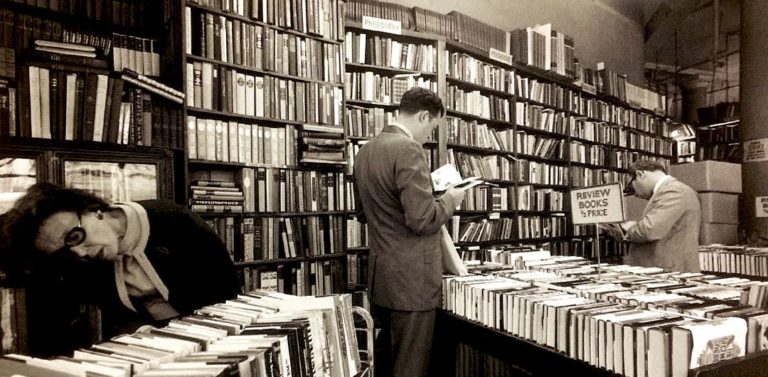by Nathan Knapp.

Why am I writing this? To what purpose and what end, or so I have had frequent occasion to ask myself over the course of drafting the initial versions of these pages, have I discussed at such length these details of both my past and current sexual being? While the former remains embarrassing—because so benign, naïve, cowardly—and frequently even humiliating to ponder, I am equally aware that the latter contains aspects which, though infinitely more tame than the perversions of a Sade or any number of twentieth or twenty-first century degenerates or even, perhaps, many so-called normal people who’ve grown up outside of a context of crushing religious fervor and fundamentalist law, nevertheless contains elements which many readers may find amoral at best and repulsive at worst, especially to those who have never considered paying a woman residing in a poverty-stricken Latin American country far south of the equator to bind herself with a ball gag or gag ball as she herself called it and touch herself while they watched. Even if these theoretical readers had actually made exactly this or similar requests of young women in distant countries, it seems unlikely to me that most if any of them would both openly admit to and then graphically describe doing so in a text meant for eventual public consumption, which would doubtless incur embarrassment and disgust on the part of certain members of their friends and family (the Biblical phrase is to heap shame upon one’s own house) and perhaps even lead to their being fired from their position of employment. There is an element of risk in this. At the same time, in writing this I have had occasion to ask whether I would do such work myself as binding myself with a gag and exposing myself for the all-seeing camera, and the answer (so far) is no, because (or so I tell myself) I have already spent too much time under the gaze of the all-seeing eye which belongs, so I was told from earliest childhood, to that Being who, having set the earth spinning through the eternal darkness of space and even going so far as to place us there upon its rough-hewn and unforgiving surface, is both omniscient on the one hand and omnipresent on the other. It now seems to me no more inherently humiliating in order to make it possible to have food to eat and to keep the heat on to be paid to tie on a ball gag before a screen than it is to make sandwiches or be a fry cook or sell drinks at live sporting events or do data entry or deliver pizzas or be a concierge at a hotel or write descriptions of lawn ornaments and bedsheets for a tech startup’s website, all of which I have done for the bare minimum wage and nearly all of which I found to be unpleasant, humiliating, and soul-sucking. There is no doubt in my mind that I would have discovered more about my own pleasure had I spent the same amount of time instead binding and gagging myself in front of a camera than in doing any of the abovementioned jobs. It’s very likely that the same cowardice which caused me to look away from Ludivine Sagnier’s naked body is the one that makes me likelier to take up any of the above jobs again than to expose myself on camera. As is clear from these pages, I lack bravery and it is exactly bravery that I admire so much in sex workers. They expose themselves in order to make a life for themselves. In so doing they give pleasure to others. These pages such as they are are my exposure.
It is increasingly my suspicion that the urge to make art and the urge to expose oneself emanate from the same place: it’s a wonder that more artists are not caught fucking in public parks, masturbating beneath overpasses, and generally fornicating on the canvases and even with the sculptures at gallery openings. Making art affords the artist a kind of lawful indecent exposure but this does not make the artist any less wretched even as it elevates the cultural reception of the result of the impulse to do so. Having for many years not believed in a savior, my belief in that great work of smut, Munch’s Madonna, has only increased.
My heart is not pure. Nor is my conscience clear. After all, a clear conscience is nothing more than certainty masquerading as morality, and certainty is itself the single greatest enabler and promoter of violence in the entire human arsenal. I have no doubt of the integrity nor the purity of my grandfather’s stated desire to go home, six months before his death, after he and my grandmother had just moved—or rather been moved—into an assisted living facility, him in such an advanced state of dementia that he could not carry on more than two or three sentences’ worth of conversation, when he threw my grandmother to the floor of their room and repeatedly kicked her, demanding: Take me home. From where I now sit writing at the wrought-iron table I can see the Christ-trees standing black against a purple-black sky like an augury of the void pressed against the greater void to come. It has rained on and off all night. Everything dripping, everything damp. This paragraph is the first I have written in almost four days. Today was the fifteenth of October. It is now the sixteenth, half-past midnight. My earlier attempt to write, made this afternoon here at the wrought-iron table where I have written most of the words in this account, or whatever it is, was obliterated by the heaviest feeling of depression I can recall since moving to this city in the middle of the state where my wife and I moved when our lives in the state where I was born became unlivable.
This is an excerpt from Daybook by Nathan Knapp, published by Splice. Further extracts have appeared on the Splice website (1, 2, 3) and in minor literature[s].

ABOUT THE AUTHOR
Nathan Knapp is a writer based in Nashville, Tennessee. His début novel, Daybook, was published earlier this year by Splice.












 Bengali (Bangladesh) ·
Bengali (Bangladesh) ·  English (United States) ·
English (United States) ·